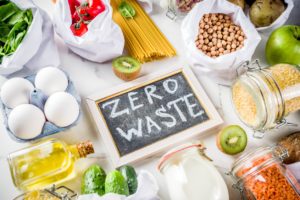Wasting food makes no sense
July 11, 2019
 Recently I was at a grocery store that was getting ready to close for the evening. An extra-large garbage container full of bakery products was being thrown out.
Recently I was at a grocery store that was getting ready to close for the evening. An extra-large garbage container full of bakery products was being thrown out.
How can perfectly good food be for sale one minute and then the next be headed to the dump? In France this would be illegal. They were the first country to require supermarkets to donate edible unsold food to charities and food banks, or to compost it.
According to the Second Harvest report, “The Avoidable Crisis of Food Waste”, 58 per cent of all food produced in Canada, an estimated 35.5 million tons costing approximately $49 billion, is lost or wasted, and about a third of that could be rescued.
Loblaw Companies Limited has an innovative solution. They have teamed up with the Toronto tech firm Flashfood.
This e-commerce solution allows local grocery stores to post pictures of perishable items to the Flashfood App that sells them at deep discounts – up to 50 per cent off. These items include meat, produce, baked goods and dairy products.
The understanding is that food items should be consumed within a day or so.
Purchase these groceries right from your smartphone and your order will be ready and waiting at a special fridge at the store.
What a brilliant idea. The retailer converts the cost of throwing the food away to revenue from that sale.
The consumer has access to food savings. Great for people on a fixed income, students saving to pay off student loans, or for anyone wanting to divert their savings to other needs.
The environment wins because less wasted food ends up in landfills which in turn means lower harmful greenhouse gas emissions.
The initiative started last summer and by the end of this summer Loblaw Companies Limited anticipates 250 of their outlets will be offering this service.
Capitalism is at its best when a need can be solved with some innovative thinking that makes economic sense.
In this case, a need for more affordable food plus less waste was solved. A good example of a “win-win”.
